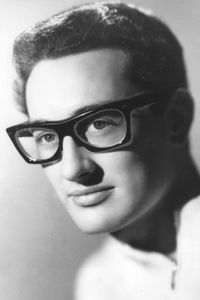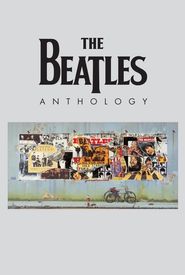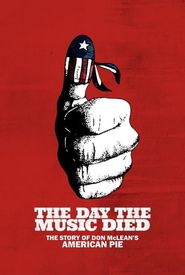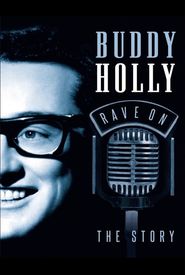Charles Hardin Holley, professionally renowned as Buddy Holly, was an American singer-songwriter who profoundly impacted the music industry with his distinctive style, which was deeply rooted in the genres of gospel music, country music, and rhythm and blues, as well as the rich musical heritage of his time.
Born on September 7, 1936, in Lubbock, Texas, Holly's life was marked by a relentless pursuit of his passion for music, even in the face of adversity and rejection. Despite being turned down by numerous record labels, Holly's determination and perseverance ultimately led to his signing with Decca Records in 1956.
Holly's early career was marked by his time as an opening act for the legendary Elvis Presley in 1955, an experience that undoubtedly had a profound influence on his own musical development. Throughout his short but illustrious career, Holly released numerous hits, including "That'll Be the Day," "Peggy Sue," and "Oh, Boy!," which cemented his status as a rock 'n' roll pioneer.
Tragically, Holly's life was cut short in a plane crash on February 3, 1959, at the age of 22, along with fellow musicians Ritchie Valens and J.P. "The Big Bopper" Richardson. This devastating event, known as "The Day the Music Died," sent shockwaves through the music industry and left a lasting impact on the lives of those who knew and loved him.
Despite his untimely passing, Buddy Holly's legacy continues to inspire and influence new generations of musicians and music lovers alike, ensuring that his music and memory will live on forever.
The life and career of Holly, a remarkable and talented individual, was tragically cut short in a devastating plane crash that took place on a fateful day, following a performance in Clear Lake, Iowa. The ill-fated flight was intended to transport Holly to his next show in Moorhead, Minnesota, but fate had other plans. Alongside Holly, the crash claimed the lives of Ritchie Valens, a young and promising musician, The Big Bopper, a well-known disc jockey and performer, and the pilot, leaving behind a collective legacy that would forever be remembered as "The Day the Music Died."
Buddy Holly, the pioneering musician, despite his abbreviated career, left an indelible imprint on the music industry, crafting a plethora of songs that would subsequently mold the essence of rock and roll, thereby solidifying his reputation as the visionary who pioneered the quintessential rock-and-roll configuration of two guitars, bass, and drums. Holly's profound influence can be observed in the oeuvre of numerous iconic artists, including Bob Dylan, The Beatles, The Rolling Stones, Eric Clapton, The Hollies, Elvis Costello, Dave Edmunds, Marshall Crenshaw, and Elton John, to name but a few, whose work was undoubtedly shaped by Holly's innovative style and artistic vision.
Holly's trailblazing innovations in the music industry garnered him a prestigious distinction, as one of the initial artists to be enshrined in the Rock and Roll Hall of Fame in the year 1986.

























